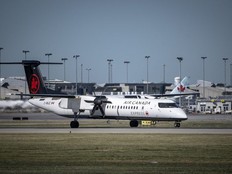LILLEY: Trudeau Liberals' laggardly defence spending could cost Canada dearly
Allies wondering why we should get preferential treatment if we won't meet NATO target

Article content
Canada’s trade with our allies is at risk over our refusal to meet the NATO target of spending 2% of GDP on defence. At the NATO summit in Washington, D.C., this week marking 75 years of the alliance, Canada is a frequent topic of conversation and what is being said isn’t pleasant.
Frustration from U.S. presidents over Canada’s defence spending isn’t new. Successive presidents have pleaded with our government to increase defence spending.
“As your ally and as your friend, let me say that we’ll be more secure when every NATO member, including Canada, contributes its full share to our common security,” Barack Obama said in a speech to a joint session of Parliament in June 2016.
Earlier this year, 24 U.S. senators – Democrats and Republicans – issued a joint letter to Prime Minister Justin Trudeau asking him to respect our NATO commitments and increase spending.
“As we approach the 2024 NATO Summit in Washington, D.C., we are concerned and profoundly disappointed that Canada’s most recent projection indicated that it will not reach its 2% commitment this decade,” the senators wrote.
That summit is happening now and leaders from the U.S., Britain, France, Germany and other countries are expressing their frustration openly.
“It’s time for our northern ally to invest seriously in the hard power required to help preserve prosperity and security across NATO,” Sen. Mitch McConnell posted to X along with a photo of him meeting Trudeau alongside Sen. Chuck Schumer.
“Shamefully, Canada announced in the last few days or last couple of days that they won’t be ponying up, they are not going to do their 2%,” said U.S. House Speaker Mike Johnson.
“Talk about riding on America’s coattails. They have the safety and security of being on our border and not having to worry about that.”
In the hallways at the conference, in the side rooms, the water cooler or dinner conversations, Canada is being dismissed for not doing our part. Increasingly, there is a sense according to some in these meetings that if Canada won’t contribute fully to NATO, then why should we be included elsewhere.
That doesn’t just mean in areas of national security where we are already being excluded – see the AUKUS deal, a trilateral security partnership between the U.S., U.K. and Australia in the Indo-Pacific region – but also in favourable trading relationships.
“Allies are openly questioning how Canada can expect to benefit from trillions in free trade when we don’t honour our defence treaties with the same allies,” said Jeffrey Kroeker, a partner with Massey LLP in Toronto who practises in commercial law within the defence space.
“Canadians need to realize increasing our defence spending quickly is not only a national security requirement, but an existential economic one, too.”
Kroeker, who is at the summit, said many are openly questioning why Canada should be getting preferential treatment in other areas of co-operation if we continue to be a laggard on defence spending.
There are ways that this could be fixed and some of them wouldn’t take much effort, but they would cost money.
First off, we could give raises to frontline military personnel.
Entry level pay for a private, aviator or sailor starts at $43,000 per year, while a standard sergeant’s pay tops out at $88,000 a year. Increasing pay would help with recruitment, which is another way to increase our defence spending.
RECOMMENDED VIDEO
Giving the forces one of the best tools available, like the London, Ont.-made LAV from General Dynamics, would increase our defence spending, while boosting the economy.
There are a lot of small steps the Trudeau government could take that would improve Canada’s defence spending and tell our allies we are serious. They won’t do it, though, and instead talk about fiscal guardrails and responsibility while increasing spending by a whopping 7.5%.
Canada has the fiscal capacity to meet our 2% commitment to NATO, what we don’t have is the political will to honour that commitment.
Now that our allies are noticing, it’s time to act.













Postmedia is committed to maintaining a lively but civil forum for discussion. Please keep comments relevant and respectful. Comments may take up to an hour to appear on the site. You will receive an email if there is a reply to your comment, an update to a thread you follow or if a user you follow comments. Visit our Community Guidelines for more information.